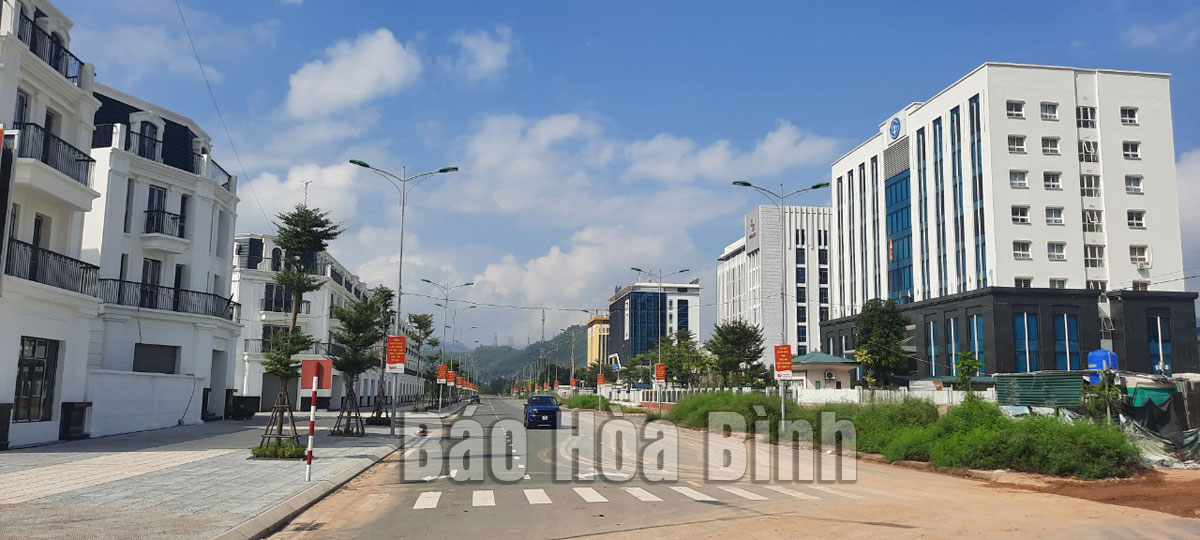
(HBO) – The Hoa Binh Civilisation is a renowned prehistoric civilisation in Vietnam and Southeast Asia. It is associated with French archaeologist Madeleine Colani (1866 - 1943), who discovered, studied, and named this civilisation between 1926 and 1931.
Street QH7 in Quynh Lam ward of Hoa Binh city has the
honour to be named after M. Colani, who gave the Hoa Binh Civilisation its
name.
The Hoa Binh Civilisation existed in not only
Vietnam but also across Southeast Asia. Hoa Binh province is home to the
biggest number of relic sites dating back to this civilisation. As those sites
own the most typical features of the civilisation, international scientists
agreed to name it Hoa Binh.
M. Colani was a geologist, palaeontologist, and
archaeologist who made substantial contributions to the formation and
development of archaeology in Vietnam and Indochina as a whole. Aside from the
Hoa Binh Civilisation, she was also linked with the discovery of the Bac Son,
Ha Long, and Sa Huynh civilisations and the Plain of Jars in Indochina during
the French colonial rule.
From 1926 to 1932, through surveys and
investigations in limestone mountainous areas in the provinces of Hoa Binh,
Ninh Binh, Thanh Hoa, and Quanh Binh, Colani discovered and excavated 54 relic
sites of the Hoa Binh Civilisation in northern Vietnam, most of which were
located in Hoa Binh. Findings indicated a Stone Age civilisation that existed
before the previously found Bac Son Civilisation.
In the study "Decouverte du Paléolithique dans
la province de Hoa Binh” (Discovery of the Palaeolithic in the province of Hoa
Binh) published on the anthropology journal in 1927, she mentioned the term
"Hoa Binh Civilisation” for the first time and pointed out its basic
characteristics and three development phases from the late Old Stone Age to the
New Stone Age.
At the first conference on prehistoric studies
of the Far East held in Hanoi in January 1932, Colani presented sufficient
evidence testifying to the existence of an ancient civilisation different from
the already known prehistoric civilisations in the world. Her proposal to name
this civilisation Hoa Binh was also approved.
As 2022 marks the 90th year since the world’s
recognition of the Hoa Binh Civilisation, at the start of this year, the
provincial People’s Committee issued Plan No 50/KH-UBND on the organisation of
cultural, sports and tourism events to celebrate this anniversary.
Notably, the provincial People’s Council
released Resolution No 177/NQ-HDND on August 29 to name Street QH7 in Quynh Lam
ward of Hoa Binh city after the archaeologist. This is one of the most
beautiful streets in the vicinity of Hoa Binh Square. The street nameplate is
scheduled to be unveiled on the 90th anniversary of the Hoa Binh Civilisation
recognition./.
The People’s Committee of Lac Son district held a ceremony on April 28 to receive the provincial relic certificate for the ancient rock carving site at Suoi Co stream, located in My Thanh commune.
A special music show titled "The country is in the fullness of joy” has been held at Hoa Binh Square in Hoa Binh city in celebration of the 50th anniversary of the liberation of the South and national reunification (April 30, 1975–2025).
The People's Committee of Lo Son commune, Tan Lac district, has organised the local annual traditional stream fishing festival on April 19 - 20.
As a land deeply intertwined with human history and Vietnam’s millennia-long journey of nation-building and defence, Hoa Binh is often revered for its epic tales and legends.
Residents of Hoa Binh boast a rich cultural identity, reflected in their unique language, traditional attire, customs, and folk melodies – described as "sweet as honey, clear as a mountain stream.”
Lac Son district’s Vu ban town held the 2025 Truong Kha temple festival on April 12–13 (the 15th–16th days of the third lunar month). Since its revival in 2019, the festival has been organised every three years, preserving valuable intangible heritage while meeting the community’s cultural and spiritual needs.



